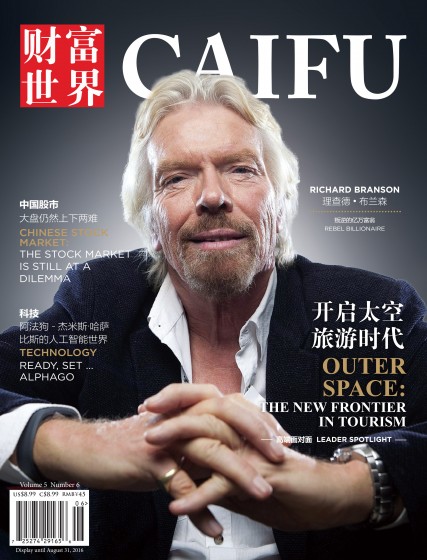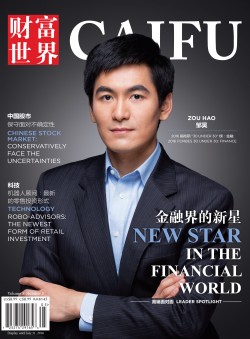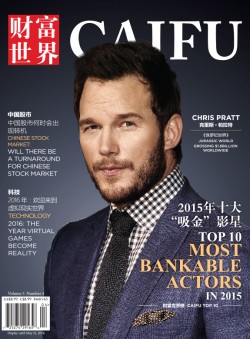 [vc_row][vc_column][vc_column_text]
[vc_row][vc_column][vc_column_text]
Zou Shiming
Boxer, China
Returning to boxing in fine style this past January with a TKO in the eighth round, Chinese boxing champ Zou Shiming (featherweight) is back doing what he does best after wrapping his hit reality TV series, Where are We Going, Dad? He also had a small part in Transformers 4. His win (Jan 30) over Brazilian Natan Santana, thrilled the Shanghai crowd and marked the first time he has fought professionally in Mainland China (earlier bouts were confined to Macao).[/vc_column_text][/vc_column][/vc_row][vc_row][vc_column][vc_column_text css=".vc_custom_1472078347495{margin-top: 15px !important;margin-right: 65px !important;margin-left: 65px !important;padding-top: 15px !important;padding-right: 15px !important;padding-bottom: 15px !important;padding-left: 15px !important;background-color: #f2f2f2 !important;}"]
"Boxing fans identify with the ethnicity of the fighters, so the guy who has really been our poster boy [there] is Zou Shiming. He’s a great fighter, plus he’s a reality TV star on the most popular show over there, he’s like a rock star. Much more so than Manny, I don’t denigrate Manny, but Zou Shiming has tremendous appeal."
[/vc_column_text][/vc_column][/vc_row][vc_row][vc_column][vc_empty_space height="25px"][vc_column_text]

The sweet science has been one of the largest draws in sporting events for millennia. Yes in all that time it’s certainly had its ups and downs. Even early in the modern era (starting in roughly 1890) boxing’s demise was being predicted. But the primal appeal of watching two men in single combat seems to be part of the human psyche, and so the entertainment value of boxing endures.
Now the question is how to bring boxing to potentially the world’s largest market, Asia, more specifically China?
Boxing was banned in China from 1960 until the 1970s, and previous to that it was a largely unregulated underground sport. However in other Asian countries, such as Japan, South Korea and the Philippines, the modern sport of boxing has a long history and many fans.
Boxing promoter Bob Arum, who founded Top Rank boxing 50 years ago, has for a number of years now been touting the need to bring boxing to China in a big way. More than any other boxing promoter Arum has been out front in developing the market and selling the sport to Chinese audiences.
That strategy has been helped a great deal by 2008, 2012 Olympic gold medalist Zou Shiming, as Arum tells CAIFU, “boxing fans identify with the ethnicity of the fighters, so the guy who has really been our poster boy [there] is Zou Shiming. He’s a great fighter, plus he’s a reality TV star on the most popular show over there, he’s like a rock star. Much more so than Manny, I don’t denigrate Manny, but Zou Shiming has tremendous appeal.”
Arum is of course referring to the great Philippine fighter Manny Pacquiao, until recently considered pound for pound one of the greatest boxers on the planet. Managed by Top Rank Pacquiao fought (before his mega fight last year with Floyd Mayweather) two bouts in Macao (2013, 2014). It was seen by some as an attempt to introduce boxing to fans there through a popular and entertaining fighter (with Shiming fighting on the undercard in one bout). Arum doesn’t deny this but notes that despite Macau generating five times the amount of gambling revenue of Las Vegas the live gate there, although comparable to Las Vegas, on a big fight is still less.
“The Venetian [Macao] people were great to us for the Manny fights, but they can’t match the purses we’d get for a big fight in the U.S. So yeah, Manny prefers fighting there because of the tax situation, but generally when comparing purses the answer is no, they can’t match the U.S.”
To make matters less attractive for promoting fights in the gambling mecca is the economy. “What’s happened there [Macao] is business has really cratered, so with business off there, we’re looking more at Shanghai and Hong Kong.”
And if the live gate is below Las Vegas in Macao, it is even more so in Shanghai, and even in Hong Kong Arum says the top price for a bout is $150 USD, while in Las Vegas ring side seats for big fights are in the thousands.
What they do get in those locales, says Arum, is significant advertising sponsorship. Top Rank has also partnered with Internet giant Tencent in streaming fights to the huge Chinese audience. That partnership has been critical, and will remain so for the foreseeable future if Top Rank wants to continue its push into the Chinese market, since pay per view (ppv), which has for the past 30 plus years been the largest moneymaker for boxing, is not workable for the Chinese market.
“Right now we don’t do ppv on Mainland China, Hong Kong yes, but Mainland no. We realized early on that China doesn’t have any major cable systems we could partner with. So we had to distribute on CCTV or on mobile devices or streaming Internet.”
In Hong Kong, where the cable market is similar to the U.S and the U.K we’ve had great success with ppv, we’ve been pleasantly surprised with the number of ppv buys in Hong Kong, but Mainland China, and I think looking well into the future we couldn’t do ppv. Yes they have the pure population numbers, and about 40-50 million people watch major sporting telecasts there, but how many would buy ppv?”
When first considering the Chinese market Arum said even if a promoter like Top Rank couldn’t get $70 USD price on ppv for a big fight, you might be able to sell 50 million people a fight for $5 USD, “And then you’d be looking at a lot of money,” he says of his original strategy for that market.
Now Top Rank, with their partner Tencent and Chinese TV are concentrating on developing local talent. “The boxing fan base [everywhere] want to see fighters that look like them, and China is no different.
In the U.S the audience is largely African American and Hispanic. Manny did well because the Hispanic community adopted him as one of their own, plus there’s a historical connection between the Philippines and that community. So we’ve had tremendous success with our League of Fists program in China. We schedule four round bouts for Chinese fighters who come from all over the country, and develop kids through that, who will be stars remains to be seen, but it has proven to be very popular and is streamed all over China on Tencent.”
He notes that before a recent bout in Shanghai starting at 9am until the main card at 7pm 40 League of Fists fights were scheduled, and all day they received high viewing numbers on TV and via streaming. Arum doesn’t preclude the possibility of another superstar fighter like Mike Tyson becoming very popular in China as Tyson was in Japan in his hey day, but reiterates their long term focus is to develop local fighters in China, as well as in the Philippines. Which while not nearly as big as the Chinese market does have a huge established fan base.
“Yes we’d love to develop another fighter with cross over appeal like Manny, who could translate his popularity to a U.S and U.K audience, but that’s not what we’re seeking to do, we’re seeking to reach an audience in China and the Philippines.”
Top Rank is of course not alone in promoting boxing in China, as the popularity of the sport grows there smaller Chinese competitors are seeking a share of the market. “There is competition, and smaller promoters are putting on shows, but they’re not very effective. They don’t have our level of sophistication or sponsorship.”
Top Rank also works with SECA Worldwide a major sports promotion company, and Arum adds their list of sponsorships continues to grow. “Through Tencent we’ve found more people watch commercials on the internet than on TV, a lot of people are now competing to be sponsors.” To would be promoters thinking of jumping into the game he advises. “Don’t go into it with rose coloured glasses, understand you’re bound to make mistakes, but keep trying, keep reinventing.” And in 50 years in a very tough business Arum says he has done just that. “What I’ve done is extended the horizon of boxing outside of the U.S. Yes boxing is cyclical, but it’s the showcase that counts, content is everything.”
Zou Shiming:
Returning to boxing in fine style this past January with a TKO in the eighth round, Chinese boxing champ Zou Shiming (featherweight) is back doing what he does best after wrapping his hit reality TV series, Where are We Going, Dad? He also had a small part in Transformers 4. His win (Jan 30) over Brazilian Natan Santana, thrilled the Shanghai crowd and marked the first time he has fought professionally in Mainland China (earlier bouts were confined to Macao).
Top Chinese boxers:
Besides Zou Shiming (flyweight) some of the up and coming Chinese boxers include, 18-0 Rex Tso (featherweight) now represented by Top Rank. Xiong Chaozhong (straw weight), first Chinese boxer to win a major world professional title. Zhang Xiaoping, another gold medalist from the 2008 games (light heavyweight). Ik Yang, a professional fighter (light welterweight) with 21 fights under his belt and a record of 19-1-1, with 14 wins by KO.[/vc_column_text][/vc_column][/vc_row]



 The sweet science has been one of the largest draws in sporting events for millennia. Yes in all that time it’s certainly had its ups and downs. Even early in the modern era (starting in roughly 1890) boxing’s demise was being predicted. But the primal appeal of watching two men in single combat seems to be part of the human psyche, and so the entertainment value of boxing endures.
The sweet science has been one of the largest draws in sporting events for millennia. Yes in all that time it’s certainly had its ups and downs. Even early in the modern era (starting in roughly 1890) boxing’s demise was being predicted. But the primal appeal of watching two men in single combat seems to be part of the human psyche, and so the entertainment value of boxing endures. I am originally form Hong Kong, I moved to Vancouver when I was very young. Canada, I think, for many people from China, offers a lot of opportunities to raise a family. Canada has great educational system, health benefits and services, and some fantastic educational opportunities. So, I had the opportunity of study at McGill University, did my Bachelor of Electrical Engineering there, and also received a Master of Business Administration from Ivey Business School at the University of Western Ontario.
I am originally form Hong Kong, I moved to Vancouver when I was very young. Canada, I think, for many people from China, offers a lot of opportunities to raise a family. Canada has great educational system, health benefits and services, and some fantastic educational opportunities. So, I had the opportunity of study at McGill University, did my Bachelor of Electrical Engineering there, and also received a Master of Business Administration from Ivey Business School at the University of Western Ontario.


